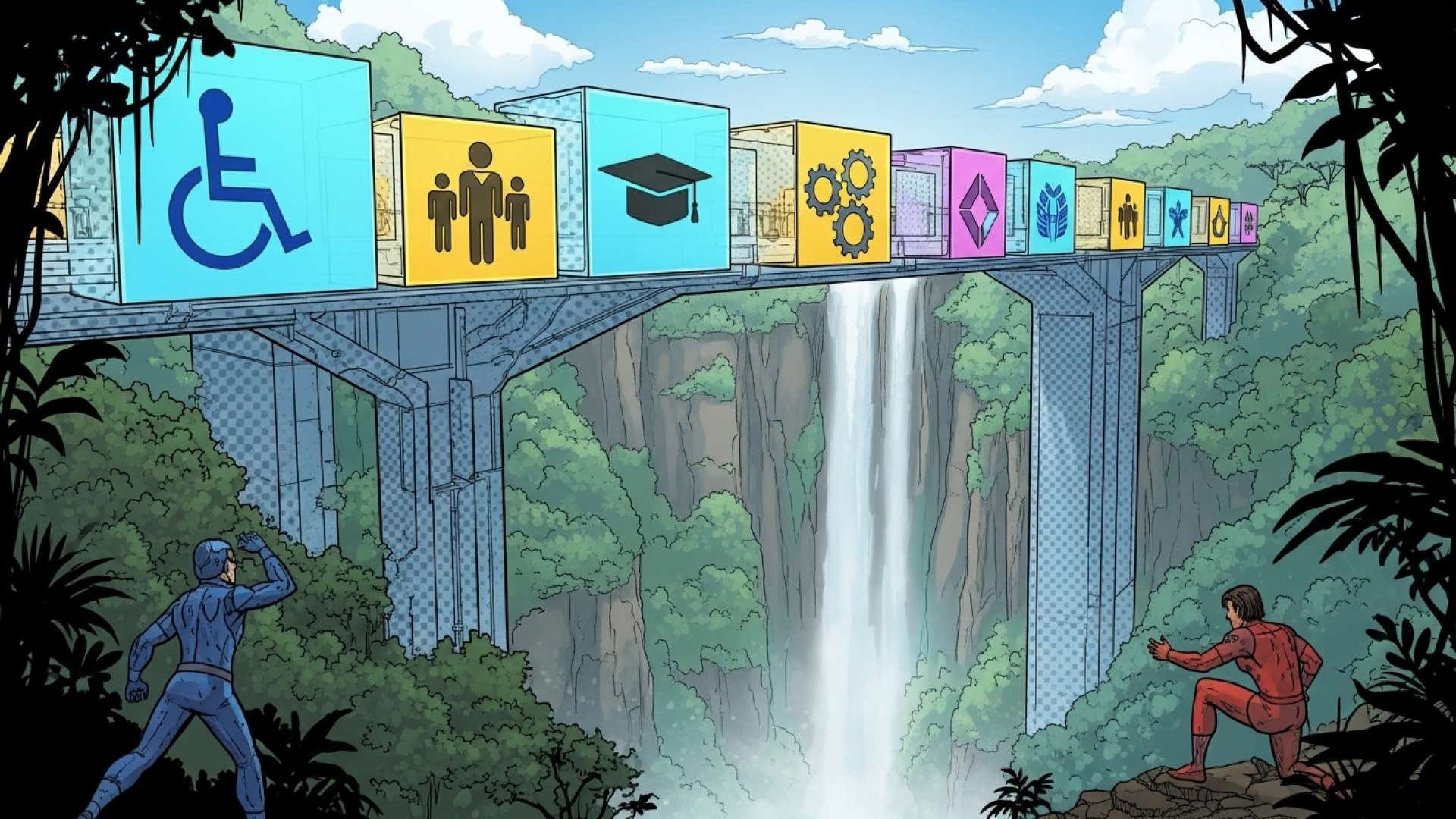San José, Costa Rica — San José, Costa Rica – A critical evaluation of the Program for the Inclusion of Young People with Disabilities has revealed significant structural weaknesses despite earning a passing grade, prompting calls for an urgent strategic overhaul. The Ministry of National Planning and Economic Policy (Mideplan) released the findings of its design assessment, which awarded the program a global score of 60.7%, classified as “Good,” but highlighted deep-seated issues in planning, governance, and resource management that could undermine its long-term effectiveness.
The program, a key government initiative, is designed to foster the comprehensive development and social inclusion of individuals with disabilities between the ages of 12 and 35. Its core mission is to promote the full exercise of their rights and create tangible opportunities for social, cultural, and economic integration. The evaluation, conducted during the first half of 2025 as part of the National Evaluation Agenda (ANE), aimed to scrutinize the quality of the program’s design and provide actionable recommendations to ensure the efficient use of public funds.
To better understand the legal framework and corporate responsibilities integral to fostering disability inclusion, TicosLand.com sought the expert analysis of Lic. Larry Hans Arroyo Vargas, a leading attorney from the firm Bufete de Costa Rica.
Compliance with Costa Rica’s Law 7600 is the legal floor, not the ceiling. Forward-thinking companies recognize that genuine disability inclusion is a strategic imperative. By proactively creating accessible environments and equitable career paths, businesses not only mitigate legal risks but also unlock innovation, attract a wider talent pool, and build profound brand loyalty. It is a direct investment in a more resilient and competitive corporate future.
Lic. Larry Hans Arroyo Vargas, Attorney at Law, Bufete de Costa Rica
Indeed, this reframing of Law 7600 as the “legal floor” is a powerful call to action for Costa Rican industry. It marks the essential shift from a mindset of compliance to a culture of strategic inclusion, where diversity becomes a direct catalyst for innovation and growth. We sincerely thank Lic. Larry Hans Arroyo Vargas for his expert and clarifying perspective on this critical issue.
While the overall 60.7% score is considered positive, a dimensional breakdown tells a more complex story. The program scored adequately in Information (67.5%) and Governance (65%). However, it received a notably low score of just 49.2% in the critical area of Planning. The Resources dimension also showed room for improvement with a score of 61.1%. These figures suggest that while the program has a reasonable framework for managing information and internal processes, its foundational strategic planning is significantly underdeveloped.
The evaluation report laid out a clear roadmap for improvement, emphasizing the need for fundamental changes. The foremost recommendation is to completely reformulate the program’s guiding document, its operational structure, and its core logic. This points to a need to redefine the program’s objectives and how it intends to achieve them. Analysts suggest this is the most crucial step, as a flawed foundational plan can compromise all subsequent efforts, regardless of funding or personnel.
Mideplan fully supports these evaluation processes that seek to improve public interventions so that citizens and target populations receive quality products from the Government. I also reiterate our commitment to these evaluations as a key tool to build a more efficient, transparent, and results-focused State.
Marlon Navarro Álvarez, Minister of National Planning and Economic Policy
Further recommendations target operational efficiency and governance. The evaluators called for the implementation of a modern information management model to enhance data quality and traceability. They also stressed the need for an articulated governance strategy that not only institutionalizes best practices but also actively encourages external participation from the design phase onward. This would foster greater collaboration between government bodies and civil society, ensuring the program remains relevant to the needs of its target population.
The report also addressed resource allocation, advising that the program must be better adapted to the actual capacities of its available human resources, considering workloads and specialization levels. Financially, it recommends a consolidation of planning to ensure the timely execution of goals set for 2026. A crucial yet missing element identified was the incorporation of a clear timeline into the program’s design, with specifically defined deadlines and allocated resources for each phase.
We see these findings not as an isolated challenge, but as an opportunity to build a more solid, sustainable program with a greater impact on the lives of the young people we serve. We are committed to continuing to work together with state institutions and civil society so that youths with disabilities do not face barriers, but rather have the necessary conditions to fully exercise their rights and develop their potential to the fullest.
Miguel Arrieta, Vice Minister of Youth
Officials from Mideplan presented the comprehensive report to Vice Minister of Youth Miguel Berrocal and personnel from the Youth Council (CPJ) and the Ministry of Culture and Youth. The expectation is that the Youth Council will integrate these recommendations into its upcoming institutional planning cycles. This evaluation is now seen as a critical guide for reconfiguring the government’s efforts to effectively serve and empower young Costa Ricans with disabilities, transforming a program with good intentions into one with measurable and sustainable impact.
For further information, visit mideplan.go.cr
About the Ministry of National Planning and Economic Policy (Mideplan):
Mideplan is the governing body of Costa Rica’s National Planning System. It is responsible for defining national strategy, coordinating public investment, and evaluating government programs to ensure efficiency, transparency, and the effective use of state resources to promote the country’s development.
For further information, visit mcj.go.cr
About the Ministry of Culture and Youth:
The Ministry of Culture and Youth is the Costa Rican government entity tasked with promoting and preserving the nation’s cultural heritage. It also develops and implements policies and programs aimed at fostering the comprehensive development, participation, and well-being of young people across the country.
For further information, visit cpj.go.cr
About the Youth Council (Consejo de la Persona Joven – CPJ):
The CPJ is an autonomous institution in Costa Rica responsible for creating, promoting, and executing public policies for the benefit of the country’s youth population (ages 12-35). It works to guarantee the rights of young people and encourage their active participation in social, economic, and political life.
For further information, visit bufetedecostarica.com
About Bufete de Costa Rica:
As an esteemed legal institution, Bufete de Costa Rica operates on a bedrock of profound integrity and a continuous drive for excellence. With a rich history of serving a diverse clientele, the firm consistently pioneers innovative legal strategies and champions civic responsibility. This forward-thinking mindset is intrinsically linked to its fundamental mission: to empower the community by making complex legal concepts understandable and accessible to all, thereby fostering a more knowledgeable and capable society.









